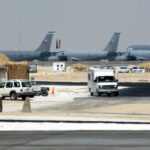Sudan’s army recaptured a key town in Sudan’s breadbasket region on Saturday, driving out a paramilitary group that the United States last week accused of genocide.
Sudan’s information minister said the army had “liberated” the town of Wad Madani, while the army said its troops were working to “eliminate rebel remnants” from the area.
If the army manages to hold the city, it would be its most significant victory since the war began nearly two years ago. Experts said this would most likely shift the focus of the war north to the capital Khartoum.
Videos circulating online showed the army entering Wad Madani, located about 160 km south of the capital. Local media reported that fighters from the paramilitary group, known as the Rapid Support Forces (RSF), were fleeing the town.
The group’s leader, General Mohamed Hamdan, admitted defeat but promised to retake the city soon. “Today we lost a round; we have not lost the battle,” he said in an audio speech to his fighters and the Sudanese people.
The victory sparked scenes of joy in army-held parts of the country among Sudanese who hoped it could mark a turning point in a ruinous civil war that has led to massacres, ethnic cleansing and famine growing in one of the largest countries in Africa.
People crowded into Khartoum’s battle-ravaged streets, while church bells rang in Port Sudan, the de facto wartime capital where many Sudanese have fled the fighting. Celebrations also broke out among Sudanese exiles in Egypt, Saudi Arabia and Qatar.
The RSF’s defeat came just over a year after the group seized Wad Madani in a victory that forced tens of thousands of people to flee and flee. caused a shock wave across Sudan. The group’s fighters then conquered entire swaths of the country, far from their stronghold of Darfur, in western Sudan.
But the most brutal fighting has been in Darfur, where RSF fighters have massacred members of rival ethnic groups, according to human rights groups and the United Nations. Last week, the United States officially determined that these killings constituted genocideand he imposed sanctions on RSF leader General Hamdan, widely known as Hemeti.
The United States also imposed sanctions on seven UAE companies it accused of selling gold and buying weapons on behalf of RSF.
In recent months, the tide of fighting appeared to turn as the RSF ceded territory in Khartoum and parts of the east of the country. The army launched a counter-offensive in the area around Wad Madani, which resulted in the recapture of the town on Saturday.
However, it is too early to say whether this victory will fundamentally change the course of the conflict. Since the first shots were fired in April 2023, the dynamics of the fighting have oscillated, sometimes wildly.
The army and the RSF were once allies, and their leaders teamed up to stage a military coup in 2021. But in the war between them, they have benefited from the support of various foreign powers.
RSF is backed by the United Arab Emirates, a wealthy Gulf sponsor that has supplied it with powerful weapons and drones, most smuggled into Sudan from neighboring countries.
The Sudanese army has obtained or purchased weapons from Iran, Russia and Turkey. Both sides exploit the country’s vast gold reserves to finance the struggle.
For ordinary Sudanese, the war has brought only misery, death and destruction, killing tens of thousands, dispersing 11 million from their homes and triggering one of the world’s worst famines in decades.
The global authority on hunger, known as the IPC, reported last month that famine had spread to five regions in Sudan and was expected to reach five more in the coming months. In total, 25 million Sudanese suffer from acute or chronic hunger.
Both sides committed atrocities and war crimes, according to the United Nations and U.S. officials, although only the RSF was accused of ethnic cleansing.








